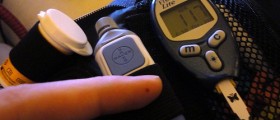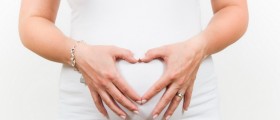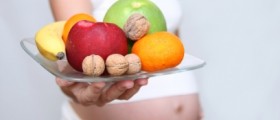
It is a well-known fact that during pregnancy women often experience changes in appetite, which generally increases. Women eat more in pregnancy and that is a good thing, because they have to provide enough nutrition for the baby, not just for themselves.
Appetite in pregnancy
One of the effects of pregnancy is increased appetite. That may be the body’s natural mechanism for providing nutrition for the baby that grows in the uterus, but it is also a result of hormonal changes, much like cravings and increased appetite in certain phases of the menstrual cycle.
The appetite does not remain constant in pregnancy, in the beginning, especially if morning sickness is present, the appetite may actually decrease. After this period, a woman will probably have the same appetite she had before pregnancy, but in the third trimester there will be a significant increase in appetite.
There are also typical pregnancy cravings, which, according to the experts, may be hormone-related but may also be a sign of a “wisdom” of the body. For example, if a pregnant woman craves dairy products, that could mean she and the baby in the uterus need more calcium and fruit craving could indicate a need for more vitamin C. In fact, the most common cravings in pregnancy include fruit and dairy, but also salty snacks and chocolate, which may not be very healthy.
There is also the famous pickle craving, explained as the body’s need for sour foods that contain more calories, required especially in the second and third trimester.
Taste for salty foods may be explained by the fact that in pregnancy the blood volume changes and increases, causing higher sodium requirement.
Healthy eating in pregnancy
Pregnant women have to make sure they eat well-balanced meals and get all the nutrients they need so they and their unborn babies can stay healthy. Meals should include fruits and vegetables, preferably fresh, which provide important vitamins, especially vitamins A, B C and E. It is recommended to have five fruit and vegetable meals per day during pregnancy.
Another important item in pregnancy diet is protein, which is best if provided through lean meat, poultry, fish, eggs, beans and lentils. It is recommended to have two fish meals per week, preferably fatty fish such as tuna, salmon and such.
Starchy foods, like rice, potatoes, breads and pasta are also necessary. It is best to eat wholegrain pasta and bread and to avoid processed white flour.

















Your thoughts on this
Loading...